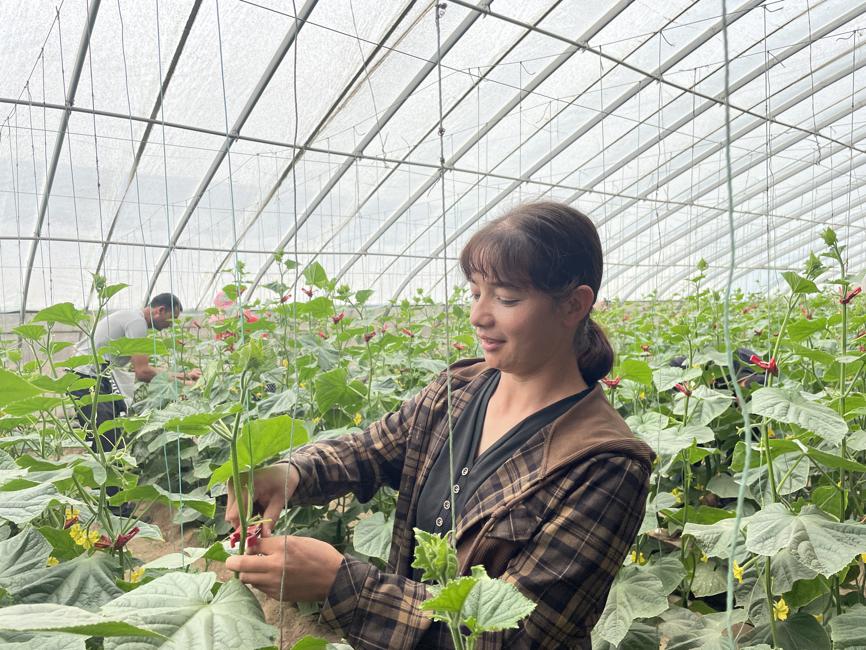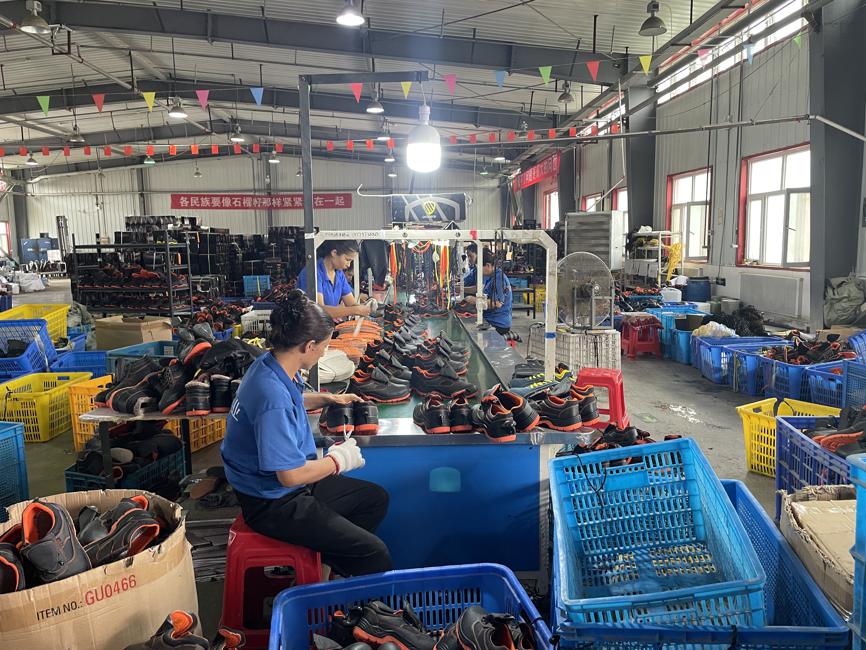
Aynur Kurban is taking care of her cucumbers in Aktax Haziri township. [Photo by Zheng Zheng/chinadaily.com.cn]
In Aktax Haziri township of Yecheng county in Northwest China's Xinjiang Uyghur autonomous region, thousands of residents are finding prosperity by developing new industries like commercial agriculture and manufacturing. These economic opportunities improve the livelihoods of many who previously struggled with poverty and lack of employment.
Aynur Kurban is one resident capitalizing on Aktax Haziri's agricultural boom. After four years of experience, she independently contracted two greenhouses to grow cucumbers this year. "I felt it was time to become independent and increase my family's income," Aynur said. "I have to work for myself."
Aided by two aunts and a former co-worker, Aynur's four-person team had to hire temporary labor to handle the labor-intensive crop. "Cucumbers require daily efforts. So we brought in extra workers," she explained. The hard work is paying off financially and personally. Aynur shared, "I am the first to arrive and the last to depart from my greenhouses. Although it's more tiring now, I feel happier."
Aynur cultivates the crop through the county's Yueye farmers' professional cooperative. Established in 2021, the cooperative works with over 100 household farms like Aynur's.
Pu Jinping, who manages the cooperative, highlighted their integrated support model: "The cooperative provides full technical guidance, from procurement to sales. We encourage members to operate their greenhouses, and then we sell their produce."
Some greenhouses are collectively operated, while cooperative members like Aynur individually run others. Beyond logistics, the cooperative advises on crop varieties, pest management and operational practices.
"Initially, farmers work under our guidance to learn the methods," Pu said. "Once experienced, many leave to independently contract greenhouses while maintaining ties with the cooperative for input and sales."
The cooperative collectively packages and markets the harvests in Xinjiang cities like Kashgar and Urumqi and further afield to cities like Chengdu, Xi'an, Changsha and Zhengzhou.
Stories like Aynur's were once rare in Aktax Haziri. Rabiya Muhtar, the township's publicity commissioner, recounted, "14,000 residents relocated here were previously impoverished. Living in remote mountain villages, they faced harsh conditions with poor access to transportation, healthcare, and education."

People are working at the industrial park in Aktax Haziri township. [Photo by Zheng Zheng/chinadaily.com.cn]
Through poverty alleviation relocation policies, residents acquired modern housing and infrastructure in the new Aktax Haziri township. This improved services and living standards and, more importantly, enabled employment opportunities.
"In the past, households had minimal land holdings, subsisting on limited herding," Rabiya explained. "But after relocation, residents can find industrial jobs or work in greenhouse agriculture."
The impact on women has been particularly empowering. "Previously, females largely stayed home tending households without careers. But now, they can work in industrial parks or greenhouses, gaining financial independence. They uplift their societal status and increase their sense of happiness."
Abdulaziz Mamat, a shoe factory team leader earning 3,000 yuan ($423) monthly, echoed these sentiments. "My wife also works in the industry park, earning 2,500 yuan, so our household makes at least 5,500 yuan combined," he said.
"Previously, we had limited ways to earn cash in farming. But now, the work is nearby, the pay is good, and our lives are much better. I believe our future will keep improving," he said.









